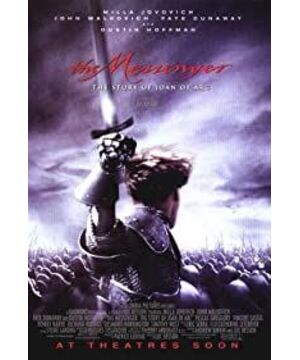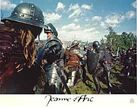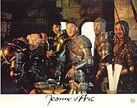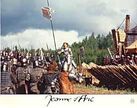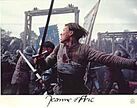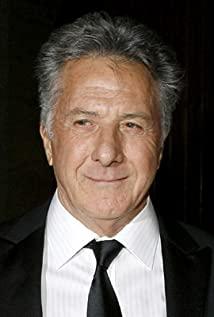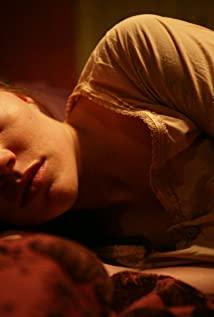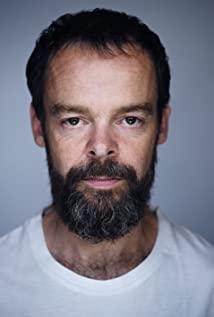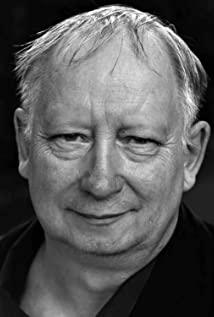The director has an excellent grasp of human nature and divinity, and the depth of thought in his work is better than other epic blockbuster films by Hollywood directors, such as "Troy", "Kingdom of Heaven" and "The Last Samurai".
"Joan of Arc" itself is a relatively complex subject. Is she an ordinary peasant woman, or is she really a messenger of God, or she deceives everyone madly. Hundreds of years ago, we cannot know the truth. In those days, I was crazy about religion. In those days, people were mostly ignorant. Women's rights are not valued, they cannot receive education, they cannot act arbitrarily and let go of themselves. Joan of Arc was considered a witch, and the first offense was to dress in men's clothing. It doesn't seem like a big deal today, but at the time, it was actually a rebellious witch act.
Sometimes I wonder if Joan of Arc was called by God, and perhaps a strong inner belief played a role in bringing her so close to the Father. Maybe, she was really chosen by God. A peasant woman who doesn't know the characters has superhuman strength to undertake the mission of saving the country. She can't do everything without a strong spiritual belief. Just imagine, without any combat experience, you can lead an army to conquer Orleans, expel the British army, and win a glorious victory. In the film, the ingenious plot arrangement, the display of specific combat details, and the behavioral development of the characters make people feel credible. Here, is the ingenuity of the editor.
In the film, we can see that Joan of Arc's victory lies in the use of strong spiritual power to inspire the hearts of the army and the people, and in the unexpected combat ideas and combat wisdom;
The film not only describes Joan of Arc's bravery, but also has some space to describe her inner struggle, her self-blame for killing too much and for the destruction of her life. After her victory, she went from a feverish passion to an inner agony, torturing herself whether she had truly fulfilled God's mission, or killed God herself. These psychological tears and images that just show the flow of the subconscious have produced a shocking visual effect and deepened the theme of the interlacing of divinity and humanity.
In the film, there is a deeper theme explanation, political themes, and the exposure of political ugliness. Mortals believe in gods, but they are spiritually dominated by gods. They use the power of the unity of politics and religion, and it is the power that uses gods and truly controls their destiny. , politicians. Politicians sit high in the halls, with silk and silk, enjoying the riches and honors of the world. The people are suffering and the people are impoverished, and they are not moved by them. Joan of Arc's victory, but to increase the bargaining chip for their compromise negotiations. They would not give up their own interests to support a peasant woman, and even conspired to send Joan of Arc into the hands of enemies who hated her. The king and mother-in-law were both brilliant politicians, who took advantage of Joan of Arc, abandoned Joan of Arc, betrayed Joan of Arc, and finally pushed her to the stake, they were actually them.
Both religious and rulers feared the power of Joan of Arc, the former envied her intimacy with God, the latter feared her charisma. A woman has a little wisdom and courage, if she is not a noble, then she is a witch. Western countries have executed countless witches, tortured them, had to confess, and died countless times. It is also mentioned in The Da Vinci Code that the reason for the church's oppression of women is the fear of women's power.
View more about The Messenger: The Story of Joan of Arc reviews


